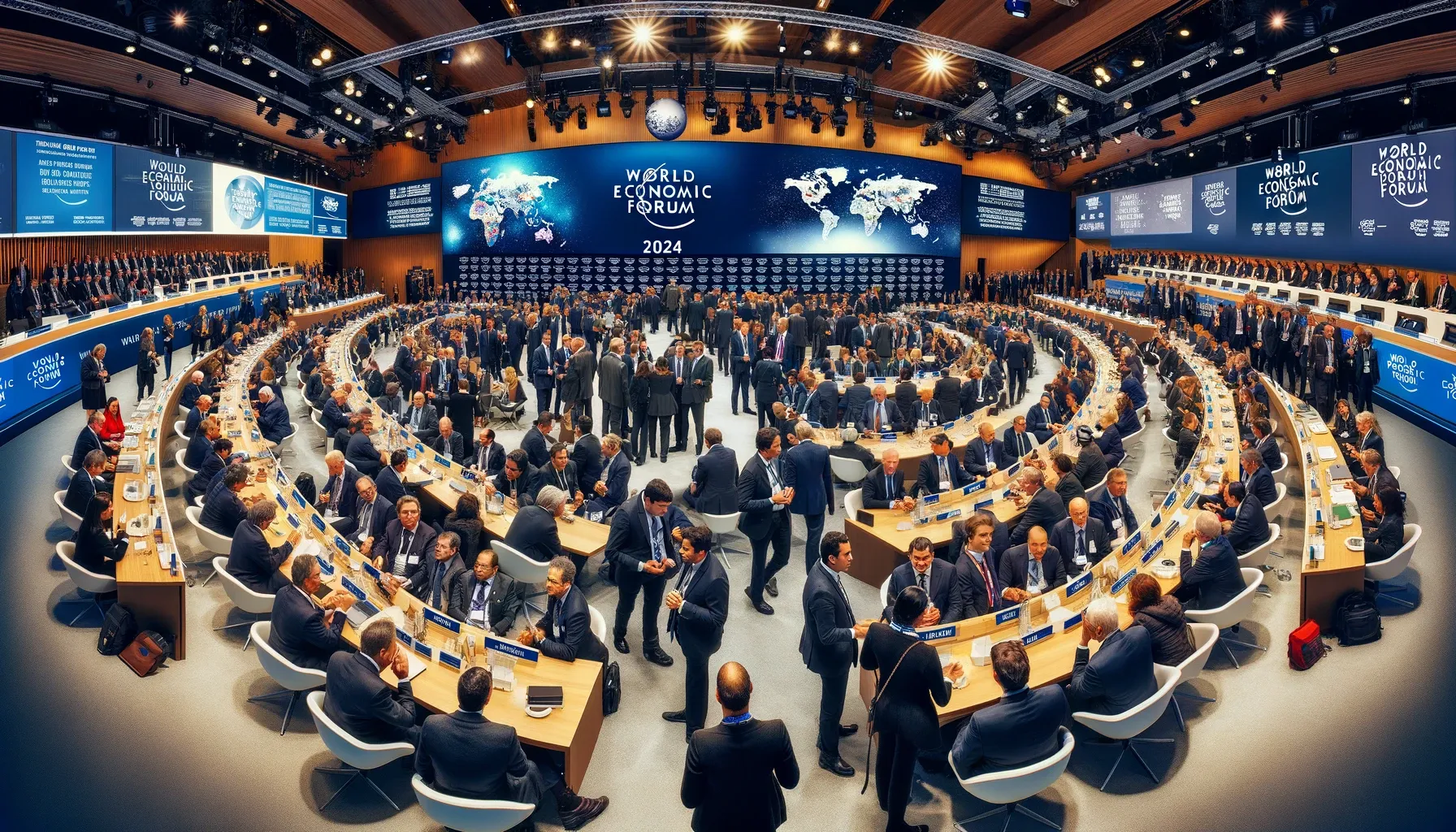World Economic Forum 2024: Global Leaders Converge in Davos to Address Pressing Challenges
The World Economic Forum (WEF) Annual Meeting in Davos, Switzerland, is a prestigious event that brings together leaders from various sectors, including government, business, civil society, and academia, to discuss and address the world's most pressing challenges. The 2024 meeting, which took place from January 15 to January

The World Economic Forum (WEF) Annual Meeting in Davos, Switzerland, is a prestigious event that brings together leaders from various sectors, including government, business, civil society, and academia, to discuss and address the world's most pressing challenges. The 2024 meeting, which took place from January 15 to January 19, highlighted several critical issues and themes.
Key Themes and Discussions:
- Artificial Intelligence (AI): AI was a significant focus, with discussions on its role as a driving force in the economy and society. Topics included AI in education, its ethical implications, the impact on creativity, and the potential risks of AI-generated misinformation. The emergence of AI technologies like OpenAI's ChatGPT was a point of discussion.
- Middle East Conflicts: The ongoing conflicts in the Middle East, particularly the war between Israel and Hamas in Gaza, were addressed. High-level officials from Israel, Qatar, Jordan, and Lebanon participated in these discussions.
- Digital Trust and AI in the Workplace: Sessions covered how companies can earn digital trust, manage digital risk, and operationalize trustworthy AI. The responsible use of AI in the workplace and bridging the gap in understanding between AI developers and broader society were also discussed.
- Generative AI and Business Reinvention: Industry leaders explored the implications of generative AI on business models, technology investments, innovation, and work practices.
- Sustainable Infrastructure and Financial Inclusion: The transition to sustainable infrastructure and the role of technology in improving financial inclusion were topics of discussion, including blockchain technology's contribution to these goals.
- Democracy and Misinformation: The threat to democracies posed by misinformation, especially in relation to AI technologies, was highlighted.
Attendees and Representation:
The meeting was attended by over 60 heads of state and government, including Israeli President Isaac Herzog and Ukrainian President Volodymyr Zelenskyy, among more than 2,800 attendees. These included academics, artists, international organization leaders, and decision-makers across various fields and industries.
Criticism and Perspectives:
The WEF in Davos is often criticized for being an emblem of the gap between the rich and poor, with critics arguing that it represents the interests of the wealthiest and most powerful. However, supporters see it as a valuable platform for global leaders to discuss shared issues and collaborate on solutions.
Conclusion:
The Davos 2024 meeting was a testament to the WEF's commitment to addressing global issues, particularly those related to technology, geopolitical conflicts, and economic disruption. It provided a venue for high-level discussions and networking, with the aim of fostering cooperation and finding solutions to global challenges.




